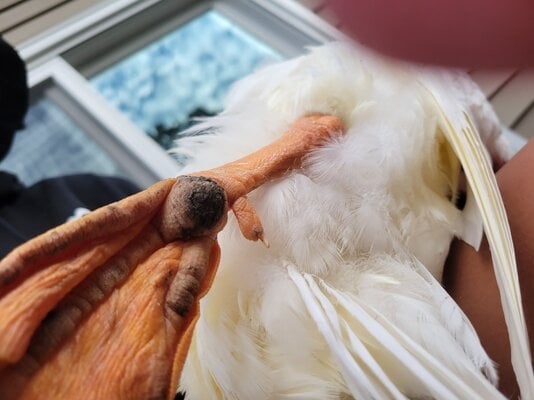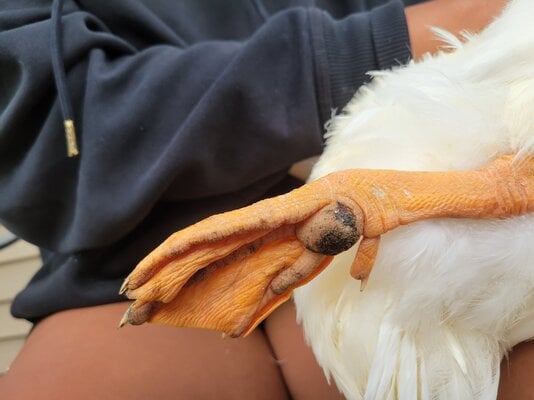Charitylb1576
Chirping
- Jun 12, 2022
- 17
- 32
- 51
Our 3 month old Peking duck has this on the bottom of both her feet. My daughter was hold her when I noticed it. They are really skittish even though we held them from 3 days on so holding them is a treat! But she is not limping or acting like she is in pain. She is eating and drinking normally. Playing with her sister and the chickens and swimming like usual. Please help ASAP!




